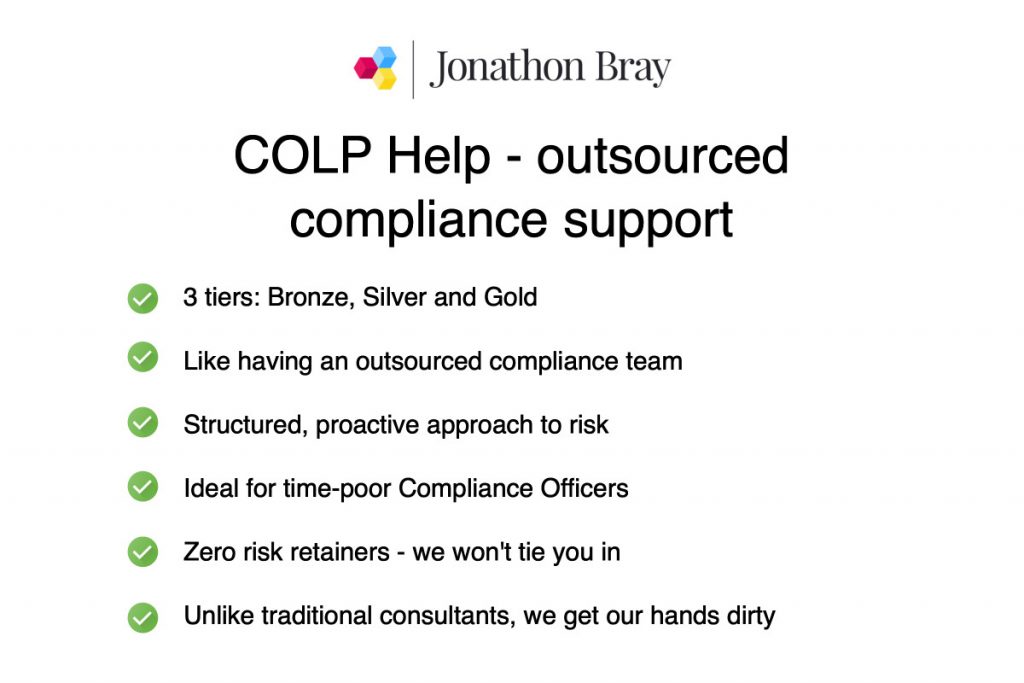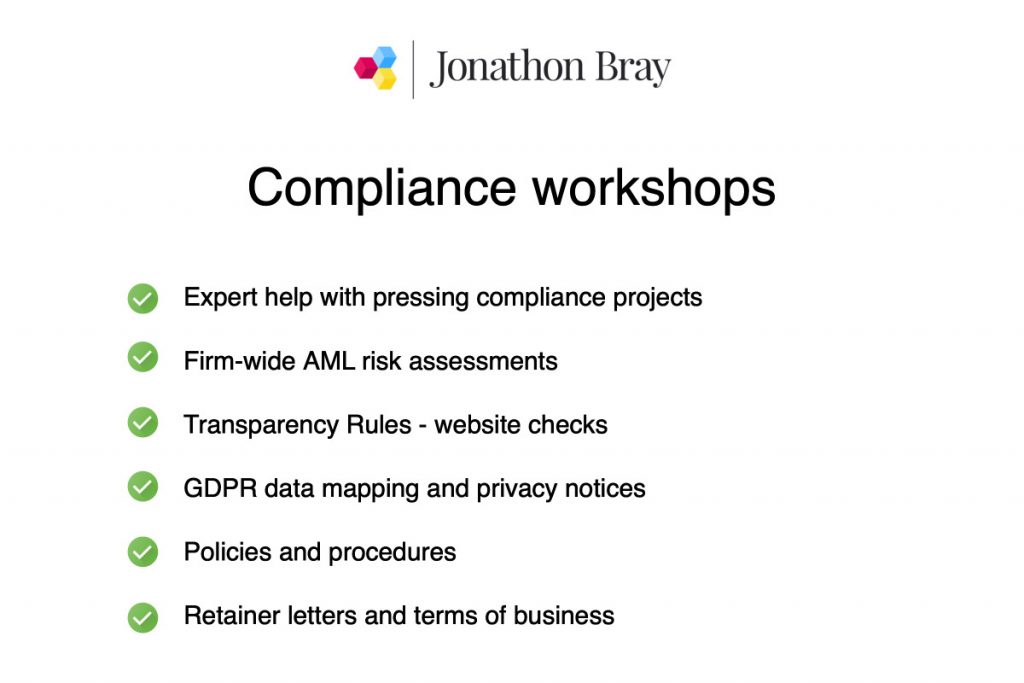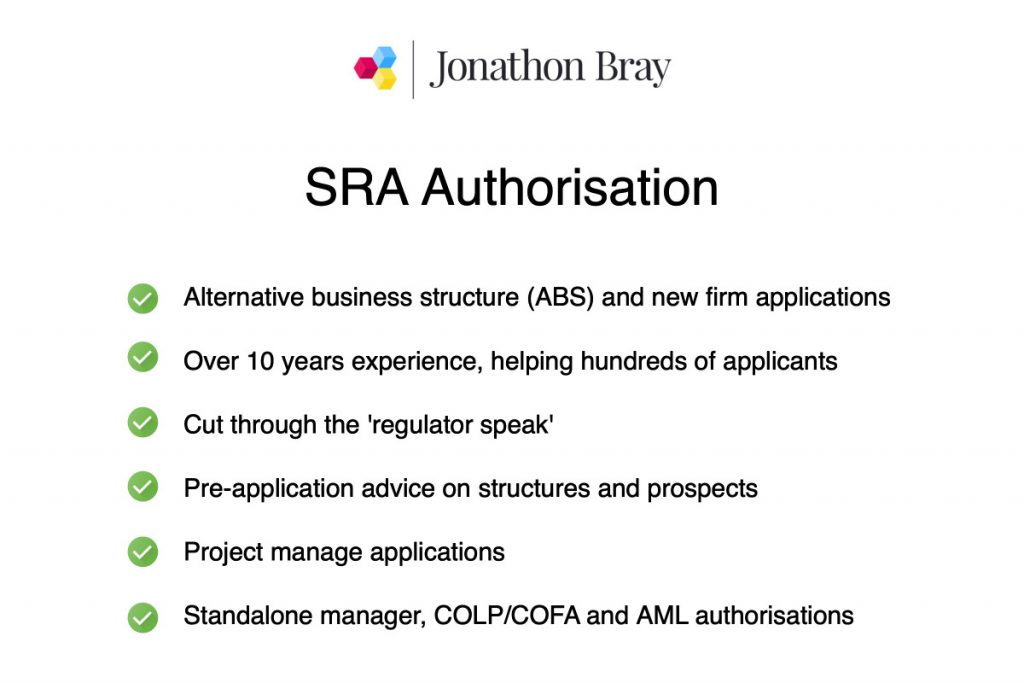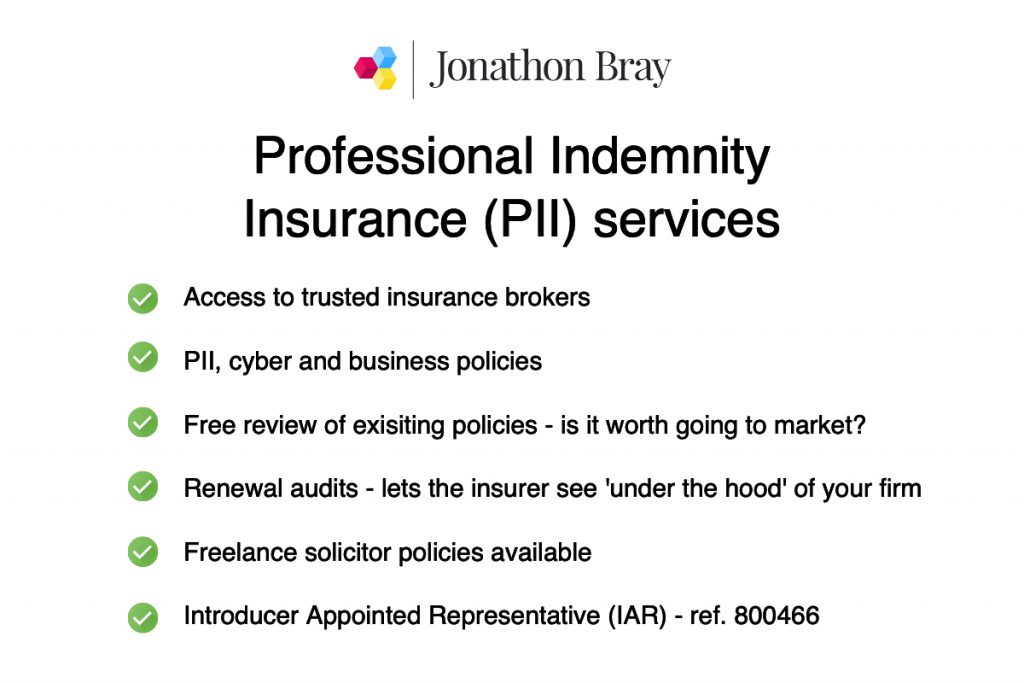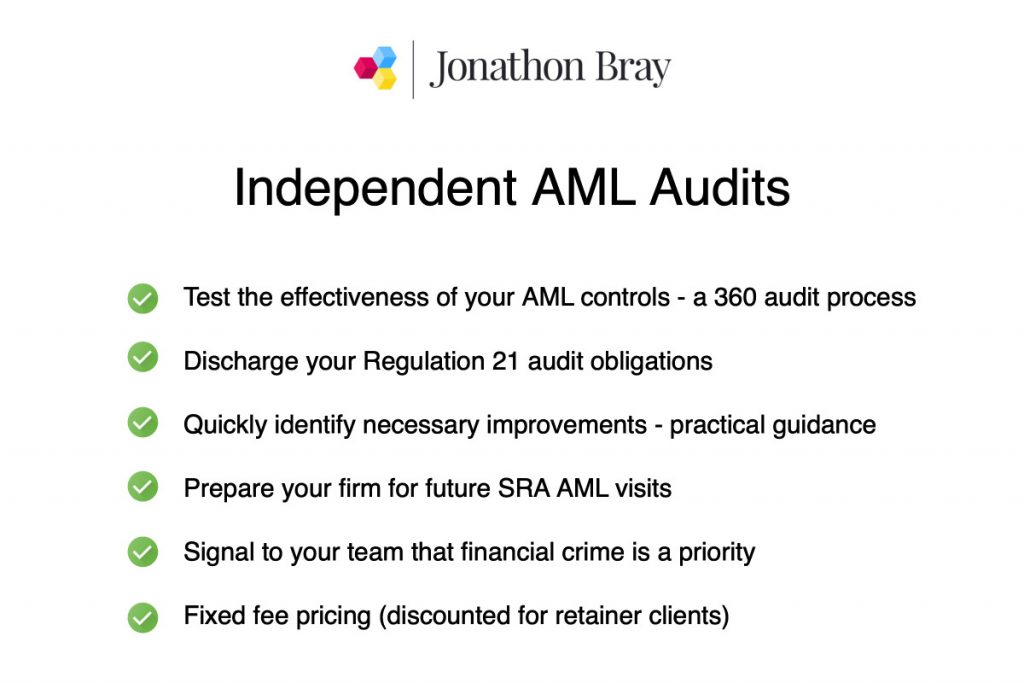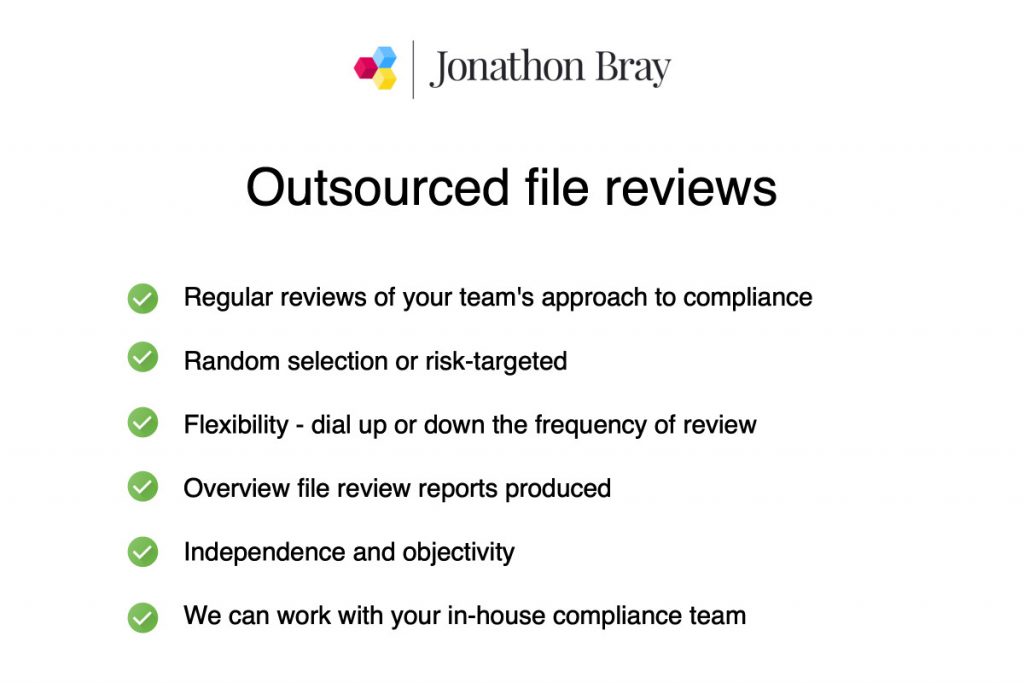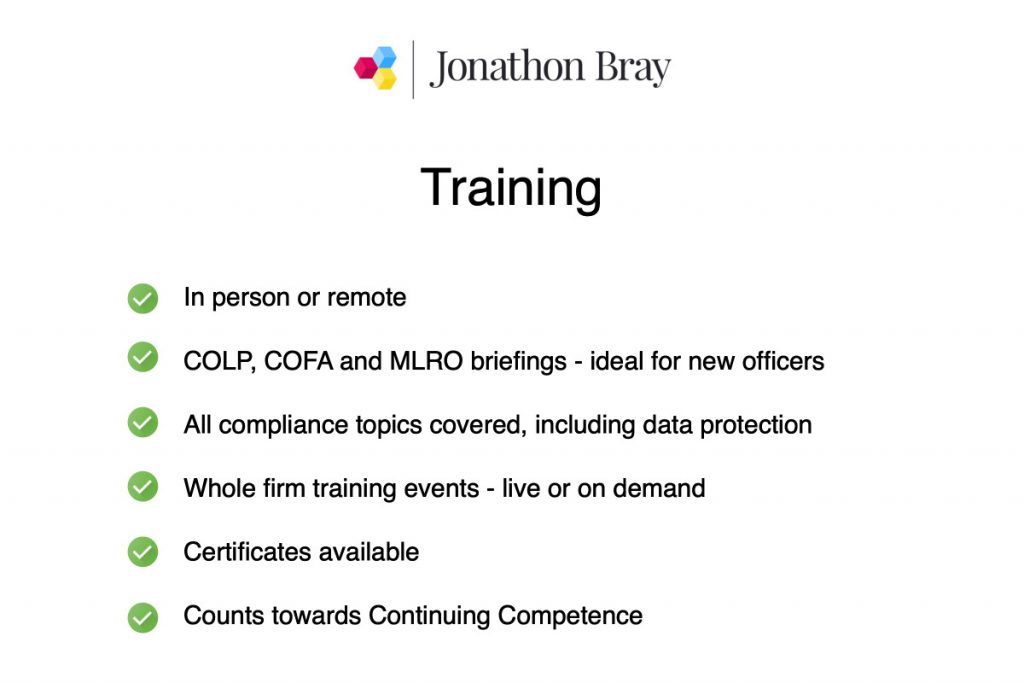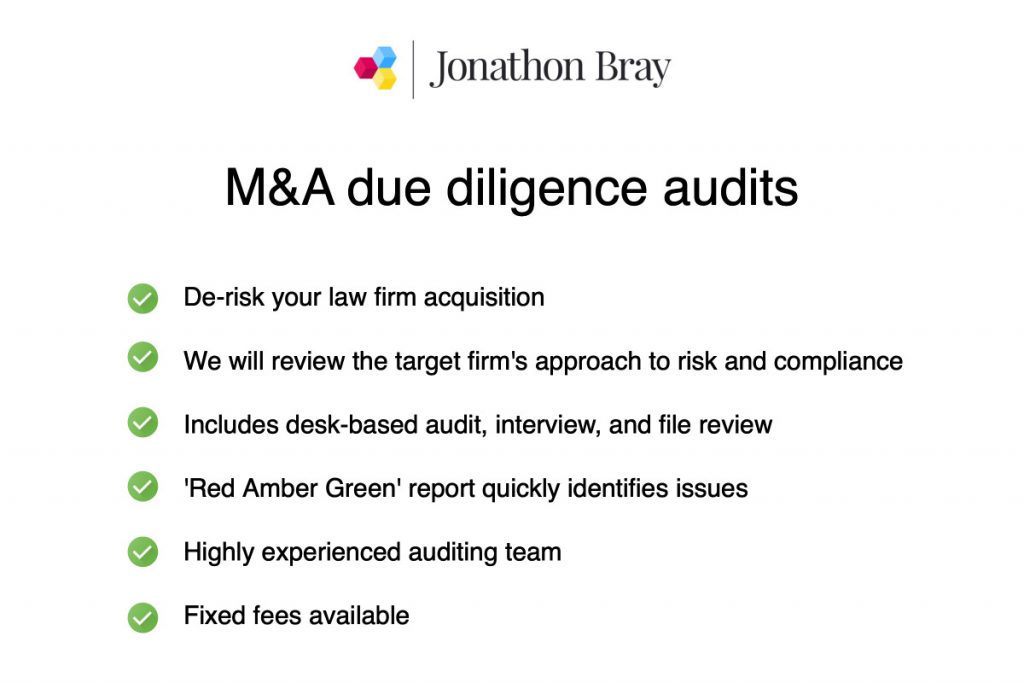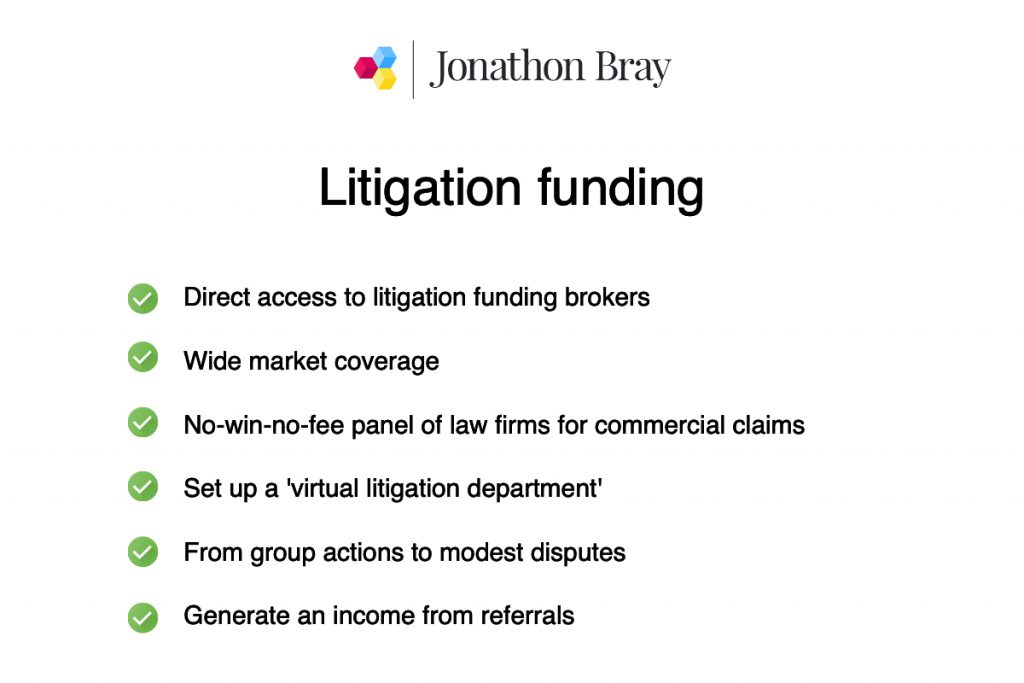Welcome to the latest COLP Insider newsletter, back after a short Easter break. In this edition:
- The Perils of CV ‘Embellishment’: A cautionary tale of a paralegal who faced severe consequences for overstating qualifications on his CV.
- Insurance Distribution Essentials: This guide distils insights from a recent webinar, offering practical advice to navigate the IDD landscape effectively.
- Updates and Guidance: Stay informed with the latest SRA updates, Law Society guidance and other important regulatory news.
- Compliance Corner: Real-life Q&As provide actionable insights into pressing compliance questions, which this week is particularly relevant to probate lawyers.
- Continued Professional Development: Discover our selection of free webinars and other training resources designed to enhance your knowledge and skills in critical areas of legal compliance and regulation.
- Disciplinary Decisions: A roundup of recent SRA and SDT decisions highlights the consequences of non-compliance and the imperative of adhering to ethical standards.
Hope you enjoy reading, and don’t forget to share the newsletter with your team.
Jon and the Team
Paralegal ‘struck off’ for embellishing his CV – don’t be tempted
In the competitive legal job market, the temptation to embellish one’s CV to land a dream job can be alluring. However, the recent case of Guillaume Kitumaini underscores the serious repercussions of lying to prospective employers.
Guillaume Kitumaini, a non-lawyer, appears to have fallen into the trap of overstating his qualifications and experiences on his CV. In a decision published by the SRA:
“It was found, on his own admission, that Mr Kitumaini misled his employers by providing them with a candidate profile/CV stating that he had achieved an LLM qualification with a merit when he had not and misled [his employer] when it challenged him about the veracity of information provided in his CV.“
Insurance distribution: A guide for solicitors
In a recent webinar (titled “Scoping out the rules: insurance distribution dos and don’ts for Solicitors”) hosted by Jonathon Bray with Rachael Eyre, Ed Marshall, and guest panellist John Pennie from Marsh Insurance Brokers, participants delved into the intricacies of the Insurance Distribution Directive (IDD) and its implications for solicitors. This post summarises the main insights and takeaways from the presentation, offering solicitors practical guidance on adhering to the IDD’s requirements.
A recording of the session is available in the Free webinars and recordings section, below.
You may also be interested in the post Insurance distribution: A summary of the rules for law firms.
The Economic Crime and Corporate Transparency Act: How law firms can help clients
This article discusses the Economic Crime and Corporate Transparency Act enacted in October 2023, highlighting key changes and opportunities for law firms in advising clients. It covers the prohibition of PO Box addresses as registered offices, the requirement for companies to provide a registered email address to Companies House, and the new ‘lawful purpose’ statement for new incorporations. It emphasises the role of solicitors in ensuring compliance, addressing practical considerations, and advising on legal ramifications and operational impacts of these changes.
ICYMI: The Dentons SDT case: A shift in regulatory enforcement?

The recent tribunal decision involving Dentons and the Solicitors Regulation Authority (SRA) has sparked significant discussion within the legal sector, especially in the wake of AML fines imposed on Clyde & Co, Mishcon de Reya and countless other small and medium sized law firms. Are there questions to be asked about the effectiveness and direction of the SRA’s AML enforcement strategies?
ICYMI: LSB conference summary: “Reshaping legal services”
The recent LSB conference on reshaping the legal profession covered important themes such as promoting ethics and trust, understanding consumer needs, and preparing for future challenges, notably those posed by AI advancements.
Highlights included a focus on the Post Office Horizon scandal as a call to action for human-centred legal services. Key discussions also revolved around encouraging ethical responsibility within the legal profession, enhancing regulatory visibility to foster public trust, integrating regulatory and cultural changes, ensuring AI benefits consumers with accountability, and the value of a collaborative approach across the sector.
ICYMI: SRA sanctions risk assessment guidance: What solicitors need to know
 The Solicitors Regulation Authority (SRA) has issued guidance on conducting firm-wide sanctions risk assessments, which sits alongside its general guidance on complying with the UK sanctions regime.
The Solicitors Regulation Authority (SRA) has issued guidance on conducting firm-wide sanctions risk assessments, which sits alongside its general guidance on complying with the UK sanctions regime.
The regulator sees the risk assessment process as an important part of navigating the complex landscape of sanctions compliance. While sanctions are not new, they have come to the fore since the Russian invasion of Ukraine in 2022.
Sanctions compliance is especially important for law firms because, unlike AML, there is no “out of scope” legal work. All firms are caught. Therefore, solicitors have to be aware of their duties in relation to sanctions. Despite this, almost half of firms failed to check whether existing clients are sanctioned, according to the SRA’s annual AML report. Only a fifth of those firms audited by the regulator ran sanctions checks on counterparties, and the vast majority did not know what to do if they came across a sanctioned individual. This has to be improved, says the SRA.
In our recent sanctions webinar (recording link below), we considered these issues in depth.
News and Guidance

SRA Updates
- Apply to remain on the roll for 2024 (now open) – For those of you without current practising certificates, the annual exercise to remain on the roll of solicitors is open until 28 May 2024.
- Hot topics: Working in-house – Following on from last year’s thematic review, which was roundly criticised for underplaying the professional challenges faced by in-house solicitors and GCs, the SRA has launched a new page summarising the work it is doing in this area. There are nearly 35,000 in-house solicitors in England and Wales, and that number is expected to grow. New guidance on the ethical and professional issues is being proposed – the first time that the regulator has published draft guidance ahead of publication.
- Consultation: Arrangements for regulating non-authorised CILEX members – The SRA has launched a consultation concerning the regulation of individuals who are members of the Chartered Institute of Legal Executives (CILEx). The consultation seeks input on the potential expansion of the SRA’s regulatory oversight to encompass these non-solicitor CILEx members. This could involve the imposition of regulatory frameworks, such as conduct rules and disciplinary measures, to ensure these individuals adhere to established professional standards akin to those expected of solicitors.
- ICYMI: Sectoral Risk Assessment – Anti-money laundering and terrorist financing – The SRA has updated its sectoral risk assessment as of March 2024, highlighting several emerging risks in the field of anti-money laundering (AML) and counter-terrorist financing (CTF). This update, required by law, is part of the SRA’s ongoing efforts to address and mitigate the evolving threats within the legal sector, ensuring firms are equipped to handle them effectively. It should also provide a trigger to review and update your own firm-wide risk assessment, taking into account the sectoral risks. Emerging risks identified include:
- Vendor fraud: This may involve a fraudster impersonating the seller of a property. It underscores the necessity for rigorous due diligence and identification. See the recent £20k fine handed out to Stephens Wilmot Ltd for real life context.
- Proliferation financing: Whilst the overall risk posed to/by the profession is low, the SRA identifies that firms operating in certain practice areas (e.g. trade finance, aviation, military/defence, commercial contracts) and jurisdictions (those subject to sanctions, known to be seeking to acquire WMDs, or share porous borders with such countries) who pose an elevated risk. Proliferation financing risk assessment is a requirement of the Money Laundering Regulations.
- Technology: Cyber security is becoming increasingly interrelated with the field of AML (“breaches could allow criminals to gain total access to both clients’ sensitive data and the firm’s systems, allowing them to be used for laundering money”). Crowdfunding and new fund transfer technologies are also identified as a risk, potentially lending themselves to greater obfuscation.
- Wider economic pressures: The regulator warns firms that AML duties are a legal requirement and diligence must not falter in an effort to cut overheads. There is no doubt that simply taking on clients has itself become much more expensive as a result of financial crime.
Other notable observations in the SRA sectoral risk assessment include:
- SRA auditors report that the most common AML systems weaknesses are: source of funds checks, lack of independent audits, screening of staff and matter risk assessments.
- Larger firms who use central onboarding teams risks creating a ‘silo’, whereby the lawyer conducting the work is not fully involved in the risk assessment process. See also Why file handlers must spearhead AML risk assessment in law firms.
- Firms are taking an overly simplistic approach to dealing with PEPs. Assumptions about whether a PEP is likely to instruct a firm may not be evidence-based.
- External compliance support can be helpful (well, we like to think so), but firms are warned not to become overly reliant on ‘computer says no’ ID verification systems and to avoid templated approaches to compliance.
- Sham litigation, crypto assets and crowdfunding platforms are identified as high risk areas for the legal profession, in addition to the more obvious services around property and trusts.
- Despite the SRA having been a cheerleader for Third-Party Managed Accounts (TPMAs), these ‘outsourced client accounts’ still pose an AML risk, highlighting the importance of oversight and due diligence in managing these relationships and transactions.
- Sanctions risk is considered as a standalone item for the first time, reflecting the complexities and nuances of adhering to international sanctions regimes, necessitating up-to-date knowledge and compliance systems.
- The risk of modern slavery is highlighted, particularly in relation to cash-intensive businesses.
There is lots of relevant information in this document. If you receive an SRA audit, you will be expected to have used the SRA’s sectoral risk assessment to review your internal firm-wide risk assessment.
Law Society Updates
- Guidance: Investigations and enforcement what to expect from the SRA and SDT – This guidance provided by the Law Society serves as a comprehensive resource for solicitors, outlining the regulators’ powers and procedures. The Gazette quotes Law Society President Nick Emmerson as saying:
“It is almost two years since the Ministry of Justice raised the SRA’s internal fining powers for solicitors and traditional law firms from £2,000 to £25,000, despite our strong opposition to the change. The fines we have been seeing issued range from around £12,000 to £23,000…but we remain seriously concerned about the SRA acting as investigator, prosecutor and judge.”
- AML: Improving the effectiveness of the Money Laundering Regulations – Share your views, feedback and suggestions with the Law Society. The professional body will be responding to the government consultation, which is looking at ways “to increase effectiveness and ensure proportionality for both regulated firms and customers“. Some of you might have strong opinions on the cost of compliance with the current Regulations vs the actual impact on reducing money laundering; the layers of friction added to the solicitor-client relationship; the level of fines imposed on firms where no harm has occurred; the way that clients have to be treated with a level of suspicion; the way that a supposed independent legal profession has become an arm of law enforcement…..I could go on. This is a golden opportunity to have your say.
- You’re fired: what to do when a client dis-instructs you (blog) – This article provides guidance for solicitors on handling situations where a client terminates their legal retainer. It covers various aspects of this scenario, including the obligations of the solicitor, communicating effectively with the client, transferring case files, billing matters, and potential ethical considerations. The article aims to help solicitors navigate these situations professionally and ethically while minimising any negative impact on the client and the solicitor’s practice.
Other Important Updates
- Justice Committee: Letter to the Lord Chancellor (“The regulation of the legal professions”) – The Justice Committee conducted a review of the current regulatory framework and received evidence from various representative bodies and regulatory counterparts, including the Bar Council, the Bar Standards Board, the Law Society, the Solicitors’ Regulation Authority, CILEX, CILEx Regulation, and the Legal Services Board. The letter to the Lord Chancellor Alex Chalk discusses the strengths and weaknesses of the Legal Services Act 2007. It also addresses concerns regarding the LSB’s internal governance rules, the proposed re-delegation of regulatory functions from CILEX Regulation to the SRA, the performance of the SRA and the Bar Standards Board, and the challenges faced by in-house lawyers.
The Justice Committee’s main recommendations to the Lord Chancellor are as follows:
- Carry out a fundamental review of the legislative framework (Legal Services Act 2007): “We recognise that there is relatively little appetite in the sector for far-reaching regulatory change, however, it is undeniable that the case for re-examination of the legislative framework underpinning regulation is growing stronger and stronger.“
- Add the role of the Chair of the LSB to those subject to pre-appointment scrutiny by the Justice Committee to ensure independence and credibility.
- Support a review of the internal governance rules and encourage the LSB to consider further clarification and strengthening of these rules.
- Consider whether the proposed re-delegation of regulatory functions from CILEX Regulation to the SRA and the proposed change of titles for CILEX lawyers is appropriate.
- Encourage the SRA and the Law Society to take a proactive approach to addressing the challenges faced by in-house lawyers and ensuring they receive the necessary support to uphold their regulatory and ethical obligations.
- Consider greater institutional independence of the BSB to facilitate improvements in its effectiveness as a regulator.
- Information Commissioner’s Office (ICO): Data Protection Fining Guidance – This new guidance from the ICO gives information about the imposition of fines related to data protection breaches. It outlines the criteria, considerations, and processes involved in determining fines for organisations found to be in breach of data protection laws.
- MoJ press release: Crackdown on ‘gagging orders’ to protect victims’ ability to access support – Changes to the law announced by the Ministry of Justice:
- Victims will no longer be prevented from accessing support or legal advice under plans to crack down on the misuse of non-disclosure agreements (NDAs) or so-called ‘gagging orders’.
- Changes to the law will clarify that NDAs cannot be legally enforced if they prevent victims from reporting a crime.
- Under the new legislation, information related to criminal conduct can be discussed with the police, other bodies which investigate or prosecute crime, qualified and regulated lawyers, and other support services (such as counsellors, advocacy services, or medical professionals which operate under clear confidentiality principles).
- The government says it is also taking steps to raise awareness of the Victims’ Code, place its principles on a statutory footing, and ensure that victims have access to support services and updates on their cases.
Compliance corner – real life Q&As

“I am a probate lawyer. What are my source of funds obligations?”
By Rachael Eyre, Head of Regulatory Services
We have received a few queries about the source of wealth in probate and how far fee earners should go.
Probate is subject to the Money Laundering Regulations, but in general people do not die in order to launder money! Most deceased’s estates will be relatively low risk. Probate practitioners, by the nature of the work, have to closely examine the assets in the estate and get a ‘feel’ for the deceased. This makes it more likely that the lawyer will spot things which are out of character or inconsistent with their knowledge of the deceased.
There are two main danger points:
- Unusual assets or deposits in the client’s bank account from relatives or beneficiaries post mortem or towards the end of the deceased’s life. This is especially important if the deceased had lost capacity or had dodgy relatives. You can imagine somebody looking to launder the proceeds of crime seeing this as a quick and easy opportunity to inherit clean funds via the administration of the estate.
- Anything incongruous in the assets of the estate may be proceeds of crime and require reporting. It would have to be something at odds with our knowledge of the deceased. For example, if we know that the deceased lived a modest lifestyle but the estate contains a stash of diamonds or priceless artwork, we are going to have to ask more questions. Unsatisfactory unexplained wealth may be reportable to the NCA to avoid a POCA offence. ‘Rainy day’ cash stuffed in mattresses and up chimneys may be able to be explained by the deceased’s mistrust of banks…but not always.
There are obvious limitations to the source of funds investigations that probate lawyers can undertake. For example, when you identify assets in the estate that are to be distributed, how do we know that the funds originally used to fund the purchase were legitimate? In the majority of cases, that is likely to remain a theoretical risk, but outside of the executors’ knowledge.
If you are uncomfortable about proceeds of crime risks, you must always discuss with your MLRO. Actual suspicion must be reported via an internal SAR (suspicious activity report), the procedure for which should be in your AML policy.
Free webinars and recordings

Next event: Live compliance clinic (clients only)
We will be sending out invitations for an April compliance clinic in the coming days. This event will be restricted to retainer clients of Jonathon Bray on the COLP-Help Gold and Silver tiers.
The team will be on hand to answer your live compliance questions, be it SRA, AML or data protection related.
This session will make a very useful piece of CPD for you and your team.
If you are shy, feel free to submit your question in advance!
Recording: Insurance distribution compliance for solicitors
March’s free webinar was focused on the important topic of insurance distribution. It is an area of compliance that touches many (perhaps even most) law firms, but is often forgotten about, or ignored entirely.
Watch the recording here (Passcode: 6=co*4$f) – expires in 30 days
Training resources: On-demand webinar archive
Contact us for access to our extensive back catalogue of recorded webinars. Topics include:
- Financial crime: LSAG, firm-wide risk assessments, client due diligence etc.
- Sanctions
- Use of client account as a banking facility
- Data protection
- Financial stability
- Conflicts and confidentiality
- SRA Transparency Rules
- Accounts Rules
- Employee Ownership Trusts (EOTs)
- Register of overseas entities
- Sexual misconduct and solicitors’ private lives
- Terrorist financing
- And more….
We also produce bespoke training webinars, live workshops for your team and COLP and COFA training.
SRA and SDT disciplinary decisions

- Lawson Akhigbe – struck of for practising unlawfully and misleading his client into thinking that he was acting through a regulated law firm.
- Farrukh Najeeb Husain – struck off for posting anti-semitic tweets (recently published SDT judgment here).
- Nathan Blake – non-lawyer litigator disqualified for backdating documents.
- David Barney & Co – fined £17,223.21 for “failing to have in place or to maintain relevant documentation to prevent activities relating to money laundering and terrorist financing”.
- (1) Mohammed Ekramul Hoque Mazumder and (2) Naser Khan – (1) struck off for misleading the court in immigration JR proceedings; (2) fined £5,000 for failing to protect clients’ interests, in pocketing £160 of client money due the firm for costs.
- Andrew Nyamayaro – COFA fined £1,980 for failing to keep proper accounting records in breach of the Accounts Rules.
- Hine Downing LLP– fined £20,870.68 for AML policy and process failures.
- Clement Hughes & Co – fined £9,993.40 for AML risk assessment, policy and process failures.
- Guillaume Kitumaini – non-lawyer disqualified for lying on his CV.
- Beighton Singh Limited – fined £19,482 for failure to have compliant AML risk assessments and policies and procedures.
- Austins LLP – fined £4,293 for AML failures, including non-compliance policies and client/matter risk assessments.
What we do – contact us for further information about our services
